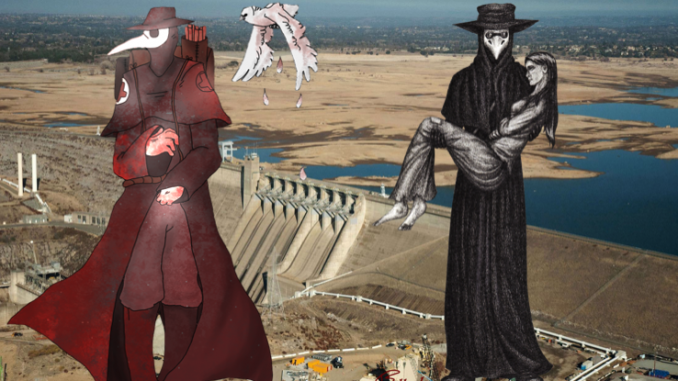
We recently reported that the CDC are warning doctors in the U.S. to be on the lookout for cases of the plague.
So far, 11 victims in the United States have contracted the disease, leaving 3 dead.
New reports now suggest a connection between this outbreak of plague and the horrific California drought.

BYPASS THE CENSORS
Sign up to get unfiltered news delivered straight to your inbox.
You can unsubscribe any time. By subscribing you agree to our Terms of Use
Breitbart.com explains: “It is unclear why the number of cases in 2015 is higher than usual,” the CDC reported.
Dr. Bruno Chomel, a professor at the University of California, Davis School of Veterinary Medicine, told Fox News that California’s record drought may be playing a role in the increase in plague cases. Plague is often transmitted to humans through the bites of infected fleas, and rodents carrying those fleas may be scavenging for food near campgrounds as food options become scarce due to drought, Chomel told the outlet.
Infectious disease specialist Dr. Amesh Adalja told Fox that Chomel’s rodent theory appears to check out.
“These cases are occurring in locations where we know that plague exists in the [rodent] population,” Adalja said.
When left untreated, the mortality rate for plague cases ranges between 66 to 93 percent, according to the CDC. However, antibiotics available today have reduced the mortality rate of the plague to approximately 16 percent.
The CDC urges people engaging in outdoor activities in areas where the plague is known to occur to wear long pants, use insect repellent and avoid contact with sick or dead animals.
FOXnews.com further explains the plague-drought connection theory: A number of factors — including the behavior of people or rodents, or even the California drought — could play a role in the cases of this bacterial infection.
While there haven’t been any studies looking to see if the California drought is affecting plague risk, past research has shown that weather can affect plague transmission, said Dr. Bruno Chomel, a professor at the University of California at Davis, School of Veterinary Medicine.
Chomel speculated that if the drought is limiting food options for rodents, the animals may be seeking food in camp grounds.
In addition, warmer temperatures are favorable for flea activity, and if there is an increase in the flea population, the insects may be looking for more hosts, Chomel said.


